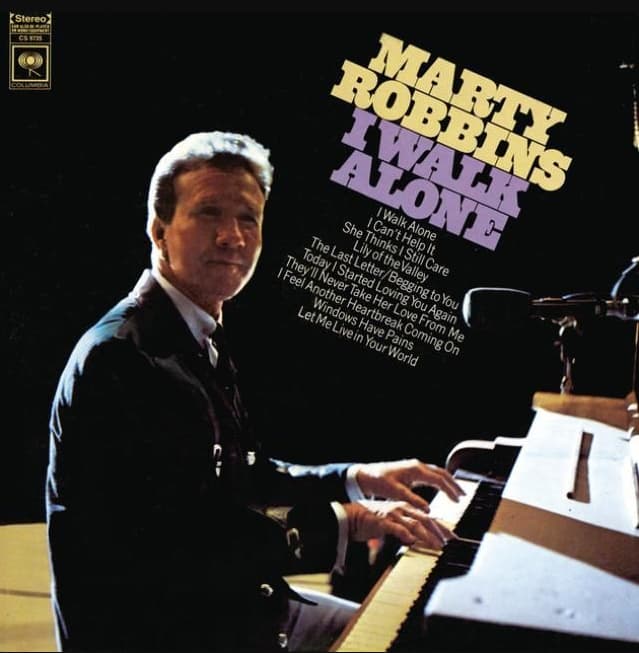
When Melancholy Rains, Even the Glass Panes Weep
“Windows Have Pains” is a somber reflection on the deep loneliness and heartbreak that can be so profound it feels as though the very world around you is sharing in your sorrow.
For many of us who remember a time when country music told a story with every note, the name Marty Robbins brings a flood of memories. There was a warmth to his voice, a sincerity that could transport you to the dusty streets of El Paso or to a quiet, lonely room where a heart was breaking. While he’s best known for his sweeping narratives like “El Paso” and the cheerful charm of songs like “A White Sport Coat (and a Pink Carnation),” it’s often in his lesser-known, more intimate tracks that his true genius for capturing raw emotion shines through. One such song, a little gem that has always felt like a whispered secret, is “Windows Have Pains”.
Released in 1968 on the album “I Walk Alone,” this song wasn’t a big chart-topper like some of his more famous hits. The album itself, a collection of introspective and often melancholy tunes, was a testament to a different side of Robbins. It reached number 2 on the Billboard Country Albums chart, and while the album’s title track and “Begging to You” both hit number one on the singles chart, “Windows Have Pains” didn’t chart as a single. But a song’s value isn’t always measured by its commercial success. Sometimes, the most enduring pieces are the ones that resonate on a personal, quiet level. This song is like a hidden photograph in a family album—not the one everyone sees, but the one you look at when you want to feel something deep and real.
The story of the song is a simple, yet profoundly relatable one. It’s an ode to the universal ache of heartbreak and the way that sorrow can color everything around you. Marty Robbins, a master storyteller in his own right, paints a picture so vivid you can almost feel the chill of the rain against the windowpane. The song’s central metaphor—the idea that the windows themselves are crying—is a poetic personification of loneliness. It suggests that the protagonist’s grief is so consuming that the outside world, from the falling rain to the glass of the window, becomes a mirror for his inner turmoil. It’s the kind of quiet, solitary pain that doesn’t need to be shouted from the rooftops; it just needs to be felt.
For those of us who grew up with this music, “Windows Have Pains” feels like an old friend. It’s a song for those rainy Sunday afternoons, a soundtrack for introspection. It evokes a time when music was less about production and more about the raw, unfiltered emotion in a singer’s voice. Robbins‘s delivery is understated, his rich baritone carrying the weight of the lyrics with a gentle ache. He doesn’t need to force the emotion; it’s already there, etched in every word. It’s a reminder of a different era, a time when a simple three-minute song could be a whole world of feeling. It’s a nostalgic nod to the days of listening to records on a turntable, watching the needle glide across the grooves as the sound filled the room, and losing yourself in a story that felt like your own. “Windows Have Pains” is more than just a song; it’s a feeling, a memory, and a quiet, beautiful testament to the enduring power of a broken heart.